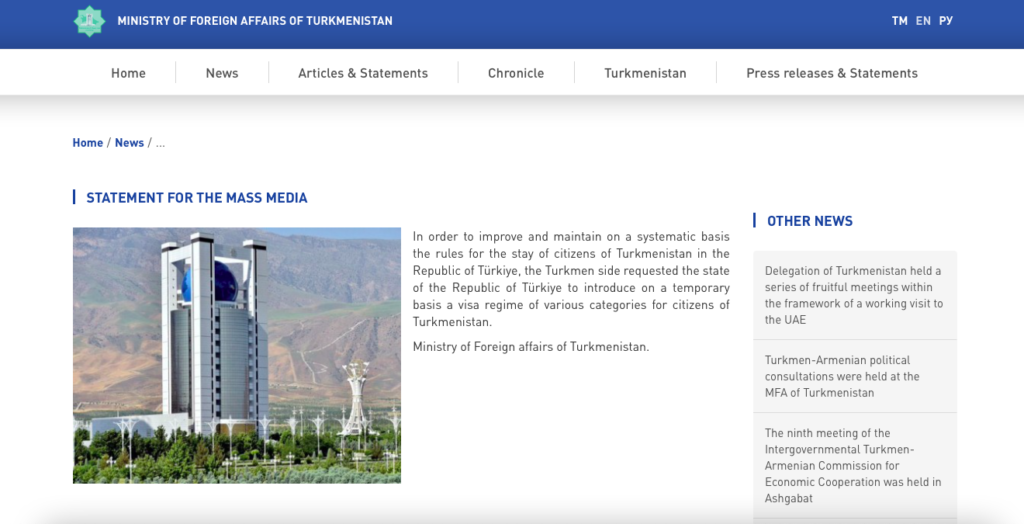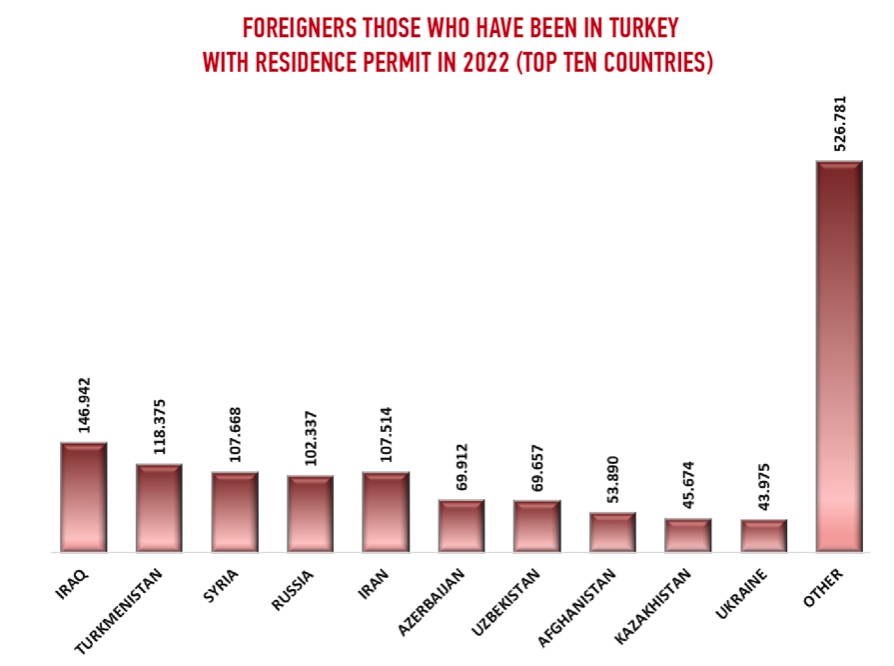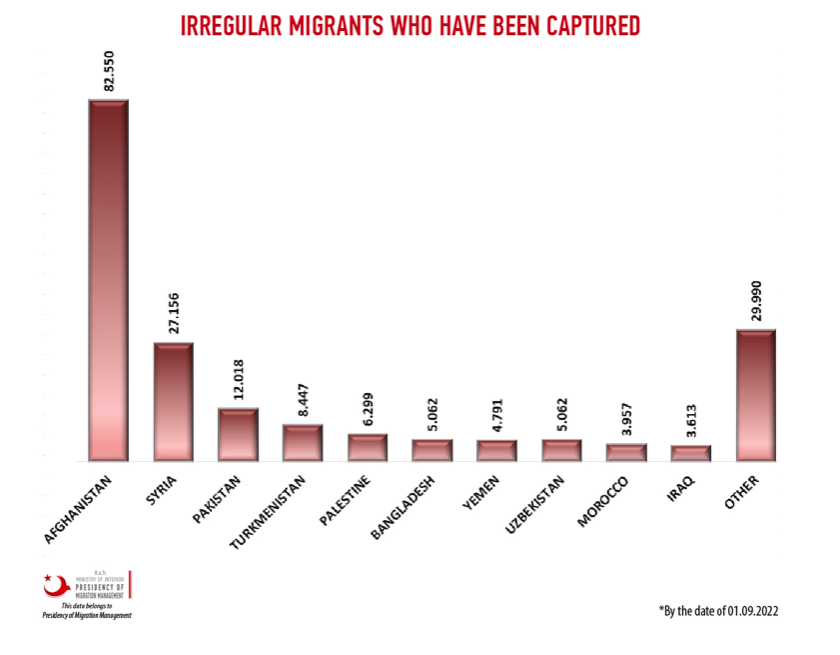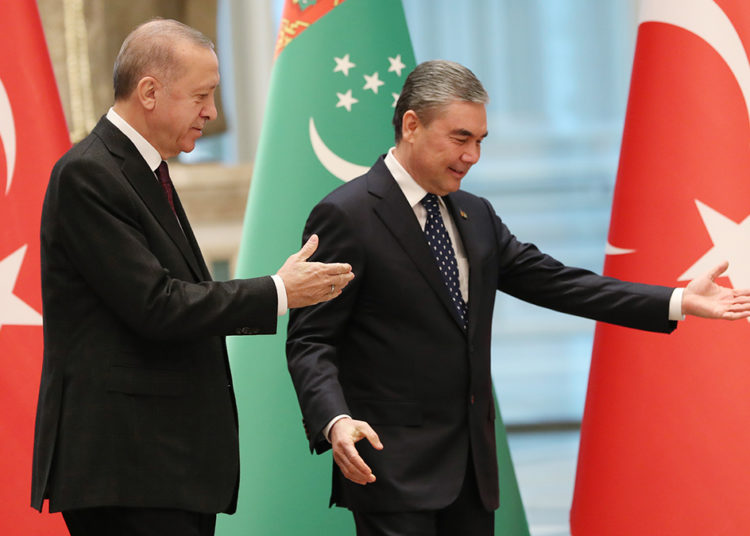Levent Kenez/Stockholm
Turkish President Recep Tayyip Erdoğan, with a decision published in the Official Gazette on Wednesday, lifted a visa exemption for citizens of Turkmenistan. The decision was taken 10 days after Turkmenistan officially requested that Ankara initiate a visa requirement for Turkmen citizens, who could previously travel to Turkey without a visa provided their stay did not exceed 30 days.
The Turkmen Ministry of Foreign Affairs in an official statement on September 4 requested that Ankara impose a visa requirement for its citizens “in order to improve and maintain on a systematic basis the rules for the stay of citizens of Turkmenistan in the Republic of Türkiye.”
According to information obtained by Nordic Monitor, the reason Ashgabat requested that visas be required for entry to Turkey is that an increasing number of regime opponents are fleeing to Turkey. One of the few countries that Turkmen citizens can enter without a visa, Turkey has become a diaspora center for many Turkmen.

According to Turkey’s Presidency of Migration Management, 118,375 Turkmen citizens were living in Turkey with a residence permit as of September 1. However, this figure is estimated to be higher with the addition of undocumented Turkmen citizens. Official statistics also show that Turkmen citizens comprise one of the largest illegal migrant groups. A total of 8,447 irregular Turkmen migrants have been detained by Turkish authorities to date in 2022.


Turkish authorities generally tolerate undocumented Turkmen staying in Turkey illegally because of the cheap labor they provide and historical ties, but activities against the Ashgabat regime are not welcomed.
Turkmen activist Dursoltan Taganova announced she was called to the Turkish Presidency of Migration Management on April 15, 2021 and warned that she might face problems with her residence permit if she did not stop her political activities.
In July 2020 Taganova and dozens of other Turkmen were detained when they tried to hold a rally in front of Turkmenistan’s consulate in Istanbul to criticize President Gurbanguly Berdymukhammedov’s government.
Most of the detainees were released a few hours later, but Taganova was held in custody as Turkish authorities sought to deport her to Turkmenistan.
She was released in October 2020 after 11 human rights organizations urged Turkish authorities not to follow through with the deportation, saying she would face arbitrary arrest and torture if she was returned to Turkmenistan.
On June 21 representatives of several Islamist human rights organizations that are close to the Turkish government called for solutions to problems experienced by Turkmen living in Turkey.
Turkmen claim they have serious problems with their Turkish residence permits, that they are unable to go to other countries because their passports are not renewed by Turkmen consulates and that they can’t return home for fear of imprisonment.
Opposition groups in Turkmenistan are worried the Turkmen government will demand that the people whose names they send to Turkish diplomatic missions not be given visas, according to information obtained by Nordic Monitor. Thus, many dissidents will be unable to leave the country. It is likely that the Erdoğan government, which has good relations with Turkmenistan, will comply with the request.
Turkey provided military aid to Turkmenistan in 2021 and sold Bayraktar combat drones manufactured by Erdoğan’s son-in-law’s company.
According to the Washington-based watchdog Freedom House, Turkmenistan is a repressive authoritarian state where political rights and civil liberties are almost completely denied in practice. Elections are tightly controlled, ensuring nearly unanimous victories for the president and his supporters.












